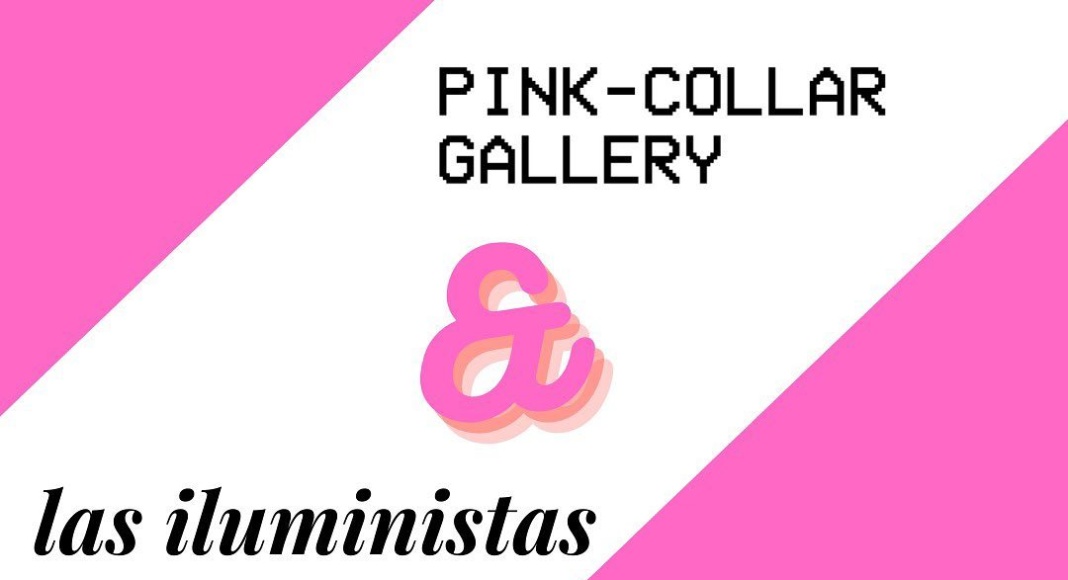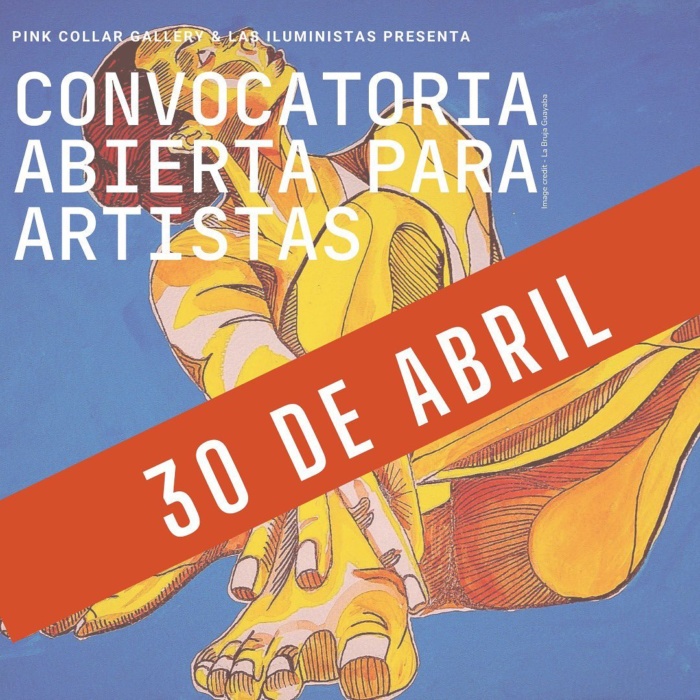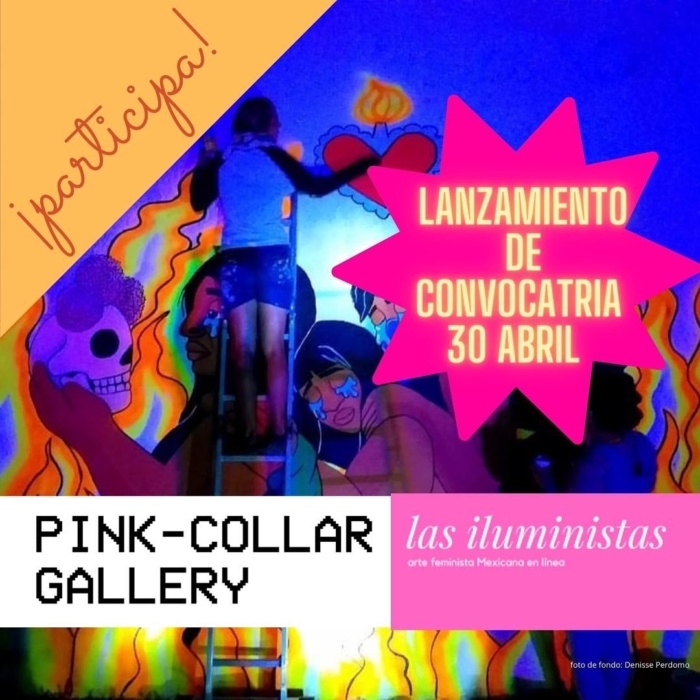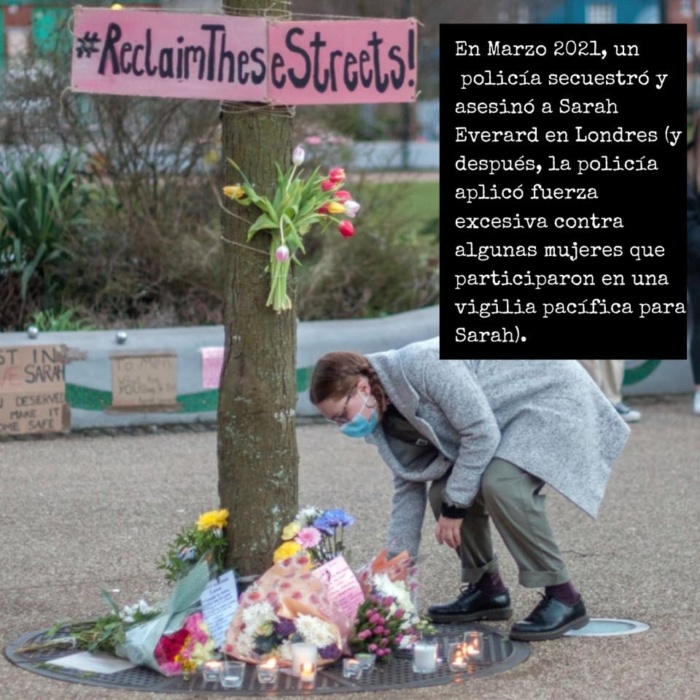Mexican feminist art collective Las Iluministas and UK online gallery Pink-Collar Gallery are coming together to invite artists and activists who identify as women and as feminists to ‘re:imagine, re:name, re:create, re:think, and re:tell’ the real stories of the women whose lives have been taken by femicide, in an international open call.
‘We want to support feminist artists and activists to help disrupt, change and gain control of the narrative on femicide. We want to display art that honours and visibilises the victims of femicide, art that places blame where it truly needs to be.’
Gender-based violence committed by men is the biggest killer of women aged 19-44 in the world, supposedly leading to more deaths ‘than malaria and car accidents combined, and causing as many deaths and disabilities for women as cancer’*.
When a woman’s life is taken, so much more is taken from her: her name, her story, her passions, her identity, her hopes and dreams. This happens not just at the moment when she is killed, but when her murder is represented in mass media, if it is represented at all. Yet, nowhere in the world is femicide taken as seriously as it needs to be, and everywhere, misogynistic systems, societies and practices continue to cause and perpetuate the circumstances that create violence against women.
Here in the UK, on 3 March 2021, Sarah Everard was walking home from a friend’s house when she was kidnapped and murdered by a Metropolitan police officer. This sparked outrage in the UK. Women took to social media to talk about their experiences of harassment when walking home, and Reclaim the Night marches took place throughout the country.
Sarah’s murder was devastating, but hers is not the only tragic story: in the UK one woman is killed by a partner or ex-partner every three days. When these women are older, living in poverty, disabled, or women of colour, their murders rarely receive the same media attention or outrage. When the media does talk about femicide, women are repeatedly blamed for their own murders, with people focussing on women’s lifestyle choices instead of blaming the men who commit violence against them.
In many ways the situation in Mexico is similar, but there are even bigger social and structural challenges that aggravate the problem. On top of underreporting of GBV, lack of access to juridical services for victims and impunity for aggressors, Mexico is ‘one of the world’s most dangerous and deadly countries for the media’ – especially for journalists who report on crime – so meaningful investigative journalism is a high-risk endeavour.
When the tabloid press and social media news sites report on femicide, they continue to commit violence against women and girls even after they are killed, by reproducing explicit and gory images of their bodies, by victim-blaming, and by failing to properly acknowledge the violence committed by men against women.
The power of art
Art is a powerful way to visibilise the invisibilised, and to challenge taken-for-granted norms and beliefs. Art can be polemical, and helps spark conversations on controversial or challenging topics. In Mexico, art is becoming an evermore important and frequently used part of growing feminist activism, which has been called the country’s ‘principle opposition movement’.
In the last two years, Mexican feminist activists have made national headlines for ‘intervening’ in national monuments and public art with colourful graffiti; for bathing public officials in pink glitter; for mass song and dance performances; and for painting over portraits of revered historical (male) figures during their occupation of the National Human Rights Commission headquarters in Mexico City. The streets of major cities like San Cristobal de Las Casas, Oaxaca de Juarez, and Guadalajara are filled with feminist graffiti, paste-ups and murals.
Since January 2017, feminist collectives in Quintana Roo painted murals as part of their occupation of the state congress building, to honour Victoria Salazar who was brutally killed by the police in March, and to honour other victims of femicide in Holbox, Isla Mujeres and more.
Open call
Building on these innovative methods of protest and feeling compelled to do something in response to rising rates of femicide and media violence, Mexican feminist art collective Las Iluministas and UK online gallery Pink-Collar Gallery are coming together to invite artists and activists who identify as women and as feminists to re:imagine, re:name, re:create, re:think, and re:tell the real stories of the women whose lives have been taken by femicide.
The work produced by artists and activists will be displayed in two parallel online exhibitions at Pink-Collar Gallery and Las Iluministas. We will commission five Mexico-based artists and five UK-based artists to develop their online work into public art (poster bombing, murals, graffiti, performance, etc – anything goes!), which will be displayed in Mexico and the UK respectively.
This means that the general public, who may not seek out digital feminist spaces, or those who do not have easy access to the internet, will be able to engage with the art too. Finally, the process of creating and displaying these ten pieces of public art will be filmed by the artists themselves, and turned into ten short documentary videos.
We want to support feminist artists and activists to help disrupt, change and gain control of the narrative on femicide. We want to display art that honours and visibilises the victims of femicide, art that places blame where it truly needs to be. It is not acceptable to see gender-based violence and femicide as a silent pandemic anymore; public art can make a real difference to how we understand femicide in our societies, and ultimately, what we choose to do about it.
The call is open to artists and activists who identify as women and as feminists, and who live in the UK or Mexico, from 30 May to 11 June. UK-based artists can find more information and apply at www.pink-collargallery.com, and Mexico-based artists at www.lasiluministas.art
Funding
This project is funded by: Arts Council England, The University of York, Durham University, Tees Valley Arts and generous contributions to our GoFundMe, which remains open.
Who are we?
Las Iluministas is a feminist art collective whose purpose is to exhibit Mexican feminist art, connect networks of feminist artists, and invite the public to get to know and interact with feminist art.
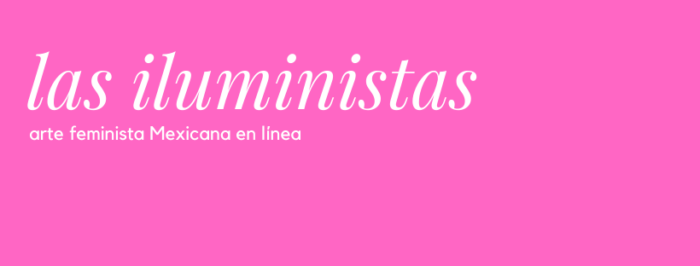
Pink Collar Gallery is an online gallery that is dedicated to the promotion of underrepresented groups and using art to promote equality; the Gallery was created by Sunderland-based curator Michaela Wetherell whose particular passions are highlighting women within the arts and the relevance of working-class identity.
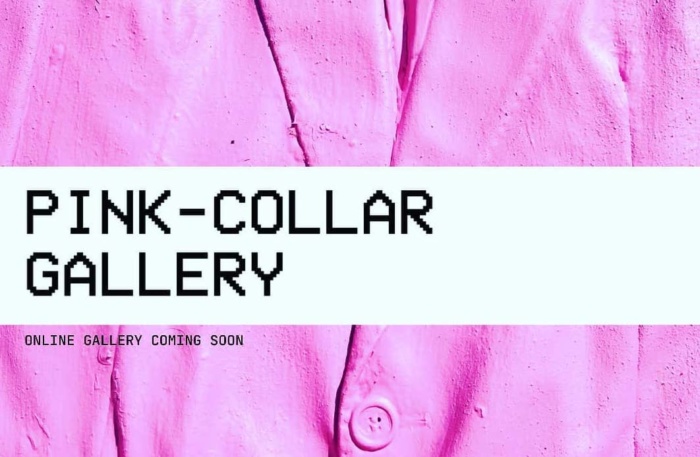
To learn about LAB’s ongoing Women Resisting Violence project in collaboration with King’s College University, head to wrv.org.uk.



